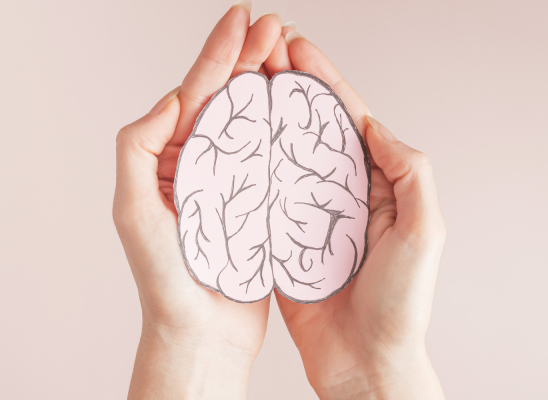Understanding Relapse in Trichotillomania: Why It Happens and How to Overcome It

Online test
Find out the severity of your symptoms with this free online test
Here’s the truth about recovery: relapses can and do happen, even when you’ve done everything right, you may find yourself pulling again. Relapses are part of the recovery process.
Relapse is not uncommon with mental health disorders. While it varies somewhat depending on the particular disorder, relapse rates for mental disorders hover somewhere around 50%. While there are effective treatment options for trichotillomania, failure to maintain gains from treatment is common, with a relapse rate of about 50-67%. By no means does this mean that treatment is ineffective. Rather, it demonstrates that trich is a disorder that requires ongoing management, and extended periods of remission are possible.
Contrary to what you might think, recovery is never a straight line. It’s more like a winding road with switchbacks you don’t always see coming. And sometimes, those unexpected twists and turns can trigger a relapse.
Just why relapses happen isn’t always clear, but the good news is, there are things you can do. Understanding relapse and knowing what to do when triggers show up can help get you back on track and maybe even avoid a relapse.
Predictors of Relapse
Of course, not every person will experience a relapse. Just why it happens to some people and not others isn’t entirely clear. Research suggests that there may be some individual factors associated with the risk of a relapse following treatment for hair pulling:
- Lower severity of pulling symptoms has been linked to increased probability of maintaining treatment gains.
- Achieving abstinence from hair pulling by the conclusion of treatment increased the probability of achieving maintenance.
Interestingly, pre-treatment symptom severity, abstinence periods prior to treatment, residual urges after having achieved abstinence, intrinsic motivation before and during treatment, and treatment compliance were not significant predictors of maintenance.
It has been suggested that the quality of the skills practiced in treatment may play a greater role in achieving and maintaining abstinence than simply the frequency of practicing the skills. This view supports the need for evidence-based treatment approaches provided by mental health clinicians who have expertise in treating BFRBs.
Know Your Triggers
Relapses can be triggered for lots of reasons and when you least expect it. Triggers can be internal (thoughts, feelings, sensations) or external (images, comments, surroundings).
Triggers can be anything that creates distress for you:
- Not enough sleep
- Stress
- Boredom
- Conflicts with a friend or loved one
- Uncomfortable or new situations
- Feeling anxious
- Something else
Part of managing hair pulling is learning what your triggers are but even then, you might not discover every single one. Life is complicated and sometimes stuff just happens.
If you’re not sure what triggers your pulling, a trigger log or journal can help you to track and better understand your triggers. Trichstop.com also has a self-monitoring app that you can use if you find written logs to be inconvenient or difficult to use.
You can talk it through with your therapist too. When you understand why, you can implement strategies to deal with the triggers that can lead to a relapse.
Build A Trigger Toolkit
Each time you’re able to handle your trigger without pulling, you’re building skills and boosting resilience that can help you stay on track and potentially avoid a relapse.
What’s in a trigger toolkit?
Triggers can pop up anytime, anywhere. So, you want to have several options at your disposal that you can quickly implement. Here are some ideas for your toolkit:
- Distractions –Fidgets and fiddles, a game on your phone, or even holding a keychain that has a texture you like can distract you from the urge to pull and keep your hands engaged.
- Writing – Journaling or using a trigger or thought tracker can help you focus and allow you to explore what’s happening. If writing helps you, keep an app or small notebook with you.
- Practice Mindfulness – Mindfulness exercises like deep breathing or relaxation strategies can help you sit with your thoughts and feelings without the need to act upon them. Practice grounding strategies. Relaxation apps (ex. Calm, Headspace, and others) can be helpful too.
- Move - Physical exercise can help expend some energy and shift your focus away from pulling.
- Remove Yourself – Sometimes an environment can be triggering. If possible, move to another seat or even leave the room. Of course, sometimes that’s not possible so having other tools (like grounding or relaxation strategies) are helpful here. Social media falls here too. It can be quite triggering. Take a social media break if you need to.
- Reach out – If you’re struggling, reach out to your support system. Call a friend or trusted family member. Engage in online support groups. See your therapist. Making contact with someone you trust can help.
Even if you relapse, all is not lost. Use the skills you’ve learned to get back on track and give yourself grace. Reach out for help. Treatment can help you gain additional skills to help you manage your trich. Relapses happen but knowing what to do can help you in recovery.
References
1. Mukaromah, I. T., Anjani, F. F., Permatasari, N. P., Karyani, U., & Hasanah, M. (2019, April). Why Do People with Mental Disorders Relapse? [Paper presentation] 2nd International Seminar on Psychology 2019. https://digitallibrary.ump.ac.id/279/2/12.%20Full%20Paper_Mukaromah,%20Anjani,%20Permatasari,%20Karyani,%20Hasanah_UMS%20%28p%20123-132%29.pdf
2. Falkenstein, M. J., Rogers, K., Malloy, E. J., & Haaga, D. A. (2014). Predictors of Relapse Following Treatment of Trichotillomania. Journal of obsessive-compulsive and related disorders, 3(4), 345–353. https://www.ncbi.nlm.nih.gov/pmc/articles/PMC4231486/
Online test
Find out the severity of your symptoms with this free online test
Start your journey with TrichStop
Take control of your life and find freedom from hair pulling through professional therapy and evidence-based behavioral techniques.
Start Now



